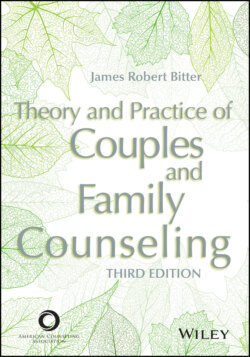Читать книгу Theory and Practice of Couples and Family Counseling - James Robert Bitter - Страница 26
The Postmodern Transition
ОглавлениеBy the 1990s, the field of family counseling itself had begun to experience a paradigm shift. Most of the approaches mentioned earlier fell into what we would now call a modernist perspective, in that they all searched for the essence of what makes up family process and sought to change the family in more functional and useful ways. The postmodern perspective challenged the idea of essences and a true knowing of the family system, suggesting that knowing a family depends as much on the perspective of the knower as the family. Thus, if we were to replace any family practitioner with any other family practitioner, a whole new understanding of the family would emerge. If there are multiple therapists working with a family, there are multiple perspectives on both understanding and helping the family. In this sense, most postmodern practitioners adopt a collaborative, social constructionist approach to family counseling. They believe that families are literally coconstructed in the language, stories, and processes that make up their lives and even in the process of counseling itself. Today the heart of social constructionist approaches to family counseling comes in the form of challenging dominant cultural and social positions and taking a stand against the ways in which such dominance constricts and restricts individuals, couples, and families.
